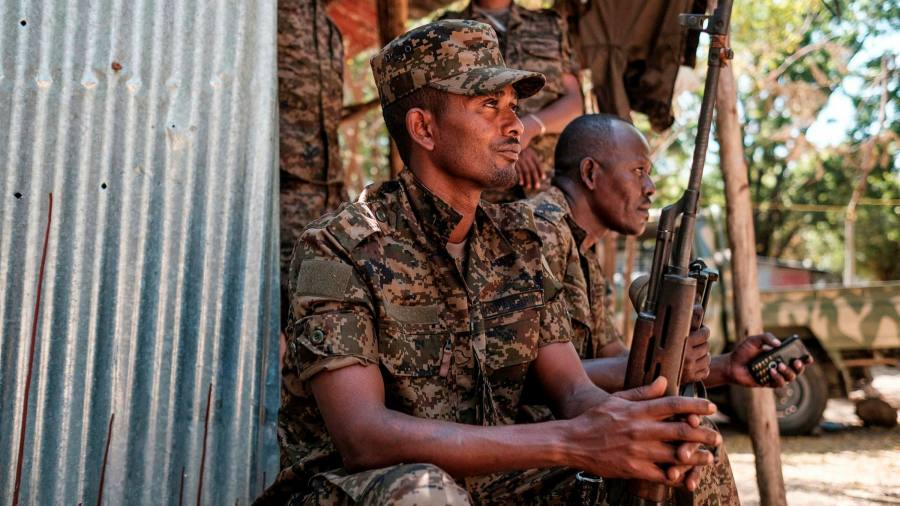[ad_1]
Three media workers, including a translator working for the Financial Times, were released without charge on Wednesday after being detained by the military in the Tigray region of Ethiopia.
Two of the three were arrested after working for foreign media that had been given permission by the government to report from the area, which had been closed to reporters since Ethiopian troops moved into the region in November.
The government of Abiy Ahmed, prime minister, said it was forced to mount the November operation after troops loyal to the then regional administration of the Tigray People’s Liberation Front attacked the federal army’s northern command.
The TPLF government, which Addis Ababa has referred to as a “criminal gangâ€, was quickly removed and an interim administration appointed, but reports have continued to seep out of the region of atrocities committed by all sides in the conflict.
As well as the TPLF forces and federal troops, militia from the neighbouring region of Amhara, which has a long-running land dispute with Tigray, and soldiers from Eritrea have been reported by eyewitnesses to be involved in the fighting. The governments of both Ethiopia and Eritrea have publicly denied any Eritrean involvement.
The released men included Alula Akalu Kassa, employed to translate for the FT for three days, and Fitsum Berhane, who was working for AFP. Alula said he had been released without charge and that his laptop, phone and money — confiscated during four days of detention — were returned. Separately, Girmay Gebru, a reporter for BBC’s Tigrinya service, was also released on Wednesday without charge.
Pressure had mounted on the Ethiopian government to release the media workers after Addis Ababa had invited foreign journalists into Tigray to report on the situation. The facts on the ground have been hard to ascertain amid accusation and counteraccusation, much of it conducted on social media, of massacres and atrocities.
Human rights groups say several thousand people, including many civilians, may have died in the conflict and that hundreds of thousands have been displaced and face severe hunger. The World Food Programme recently struck an agreement with the government in Addis Ababa to gain better access to Tigray after it and other non-governmental groups alleged that they had been denied full freedom of movement in the region.
Ned Price, US state department spokesperson, on Tuesday said that the arrests of media workers appeared “inconsistent with the Ethiopian government’s commitment to permit international media access to Tigrayâ€.
Price added that the state department had been in touch with Ethiopian government officials and the Ethiopian broadcasting authority — which authorised the trip along with the Ministry of Peace — to “express our concern and to seek an explanationâ€.
Daniel Bekele, head of the government-appointed Ethiopian Human Rights Commission, had demanded that the government bring credible charges against the media workers or release them.
Additional reporting by Katrina Manson in Washington
[ad_2]
Source link





